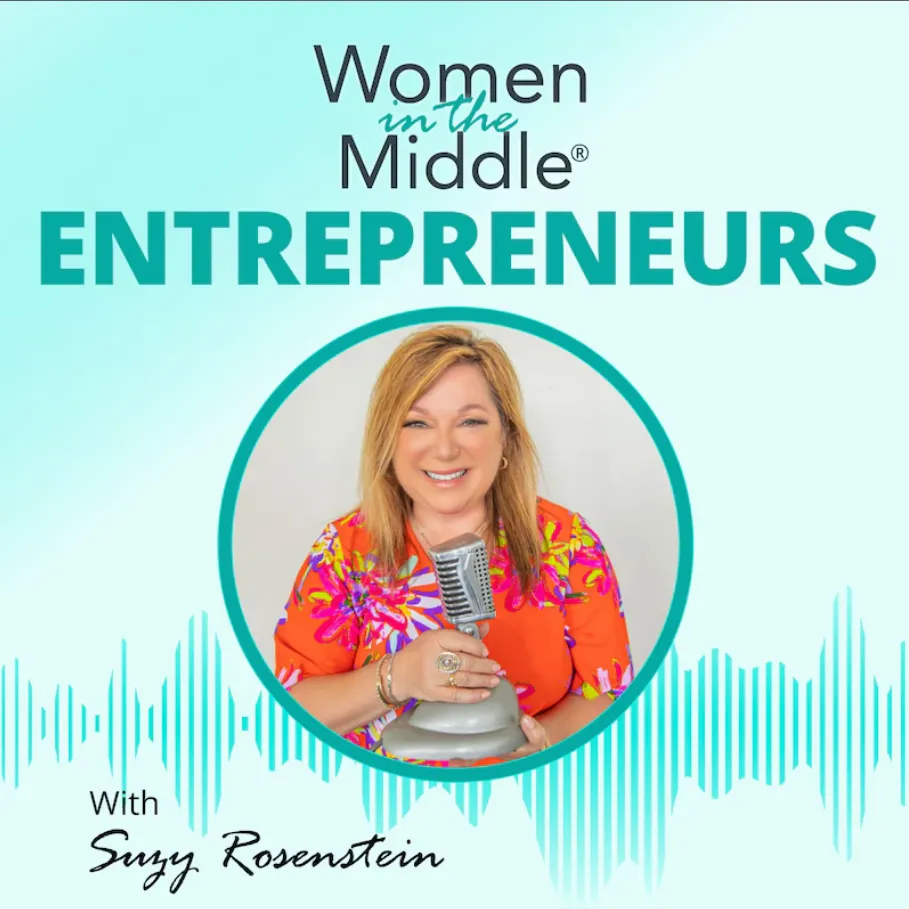Inclusive Change
Start the conversation
Read our blogs and discover more about neurodiversity through our links


How To Anchor Yourselves In Hard Times - TED Talk

Some of my fellow Tedx Speakers at UWE, Bristol
In April 2024, I was lucky enough to be chosen to deliver a Tedx Talk at UWE Bristol. Hosted by the Students' Union, the event centred on the theme 'Ripples of Change'. Speakers came from all over the world to take the stage and deliver their engaging and thought-provoking talks on a range of topics aligned with the theme. The roster of incredible speakers covered a spectrum of topics, from understanding 'selfhood', which introduced me to the term 'Flat Muffin' - to overcoming addiction and advocating healthy workplaces, all the way to the dismantling of child trafficking networks.
I must admit, I felt a bit out of my depth. I was listening to the speakers before me and became very nervous. By the time it was my chance to be mic'd up, I was not just anxious but had full on stage fright the instant I set foot on the iconic red circle on the stage.
You can watch my Ted Talk in the video below, but I know that I forgot to say much of what I had intended to - in the moment, it just went 'poof' out of my head. Nevertheless, I managed to deliver a good enough talk, but I wish I had done better.
So, because I had actually written my talk beforehand, I've adapted it into this blog. With the working title:
When is a Wagon Wheel an Anchor?
In 2019 I broke, I literally broke. At the time, I was in my late 40s, with a great career, having done some of the most exciting jobs you can imagine. I left my job and career (maybe a little impulsively) - I just felt like I couldn't go on anymore; work was impossible at that time.
Four years earlier, in 2015, my 9-year-old daughter approached me with a confession I never expected from someone of her age.
She said that felt like an alien in this world and had just attempted to take her own life.
Can you imagine that? Perhaps you don't need to because you've been through something similar. I hope not, but my experience tells me that more people than you realize have similar tales but aren't always comfortable sharing.
An Emotional Rollercoaster
As you may well imagine, this plunged me and my husband, her dad, right into an emotional rollercoaster. What were we supposed to do? What should we say? We couldn't let her see us cry - or should we cry with her? How on earth were we supposed to help her?
As a professional change manager, I would describe this rollercoaster as The Change Curve - a ride with so many ups and downs that it rivals a theme park. In reality, it was probably the hardest and darkest time in our lives, or quite simply, a really shitty time.
The Change Curve - if you haven't heard of it - is a theory positing that people experience a range of emotions when faced with change.
Originally, Elizabeth Kübler-Ross wrote about this theory in 1969 in her book 'On Death & Dying'. It was intended to help understand the processing of emotions by terminally ill patients, but now, this model is widely discussed in the world of change management.
The Stages of the Change Curve:
The stages are: Shock & Denial, Anger, Bargaining, Depression, and Acceptance & Integration.
There are sometimes slightly different iterations, but that's basically what it is. You could apply it in many situations: reactions to grief, a medical diagnosis, redundancy, a restructure, a divorce, and more. I've personally used it in digital transformation projects and a whole range of change programmes.
At each of the stages you will see and hear different things. As I explain these you may recognise your own reactions to change:
Shock & Denial - "are you sure that's what happened?"
Anger - to yourself, to others, the situation: "why us?" or "why didn't anyone see this earlier?"
Bargaining - finding ways out: "if we could just..." or "I need this to happen."
Depression - not everyone gets here but when you do it's about despair: "I can't go on." or "I have no hope for the future."
Acceptance & Integration - this is when we come to terms with things and move forward: "let's do this" or "I am going to be okay."
What happened to us?
Back to 2015. Now, can you imagine what happened to our family at that time? We were most certainly in shock...
I mean, our 9-year-old had just told us she tried to take her own life.
There's a part of this theory that shock and denial help at this stage to suppress some of the incredibly difficult feelings you will need to process later. But being suppressed means you can literally just 'keep going' for a period of time.
In our case, we had to do what we could to help her. We found ourselves in a world of SEND, having conversations with teachers and professionals about her mental health. I was in shock for quite a while.
But we had to research, find help, talk to people, and get her to talk to people - not at all easy with a young, anxious, and depressed little girl!
When The Waves Get Rocky - We Need Anchors
Now, this is when our anchors were vital. You see, when coping with change - whether personal or at work - something that can help us stay steady are our anchors.
Anchors can hold you back from moving forward, but they can also keep you stable. While everything around you is changing, and the ripples of change turn into crashing waves or a force 10 gale, anchors can hold on too tight, taking you down and drowning you in the waves.
Sometimes we need to figure out which anchors to hold on to and which ones to release.
An anchor could be a routine, a physical object, a friendship, faith, a hobby, or even a TV program or film you watch daily. In the workplace, anchors are found in culture, relationships, or processes. I have known a simple plant pot to be an anchor,, and never underestimate the significance of a desk space as an anchor.
The title of this talk is inspired by a conversation about anchors and what they can be - a conversation that recounted yet another emotional tale of a young adult who tragically lost both parents and now visits his grandparents daily where he has a Wagon Wheel - a chocolate-covered biscuit, with marshmallow and jam. That Wagon Wheel - and the daily visit - is their anchor,
At that time, my anchors were my family - we are lucky that we are such a strong family, including my husband, my mum and my stepdad, and my mother-in-law. Another anchor was school and my work.
We each have our own journey of change
Fast forward two years and to a completely different TED Talk topic about navigating support for mental health in young children, we were lucky to get the news that she is autistic. It was a relief, validating so much of what had been happening.
By this time, she was eleven and about to transition into secondary school.
And guess what? We were thrown right back into The Change Curve, definitely reverting back to denial. When my daughter was told about her diagnosis at an appointment, her response was "What are you talking about? I haven't got Alzheimer's; my memory is perfectly fine!" And to be fair, it really is!
It took her a while to get through her own Change Curve, which brought with it a whole heap of mental health challenges as a teenager - a story that is all too common.
For me, I fought a lot and remember often saying "my mission is to get my children through their teenage years alive - and that might conflict with society's norms and expectations'. As a family, we coped for the next two years, battling to get support, fighting for education and therapies, but all of a sudden, I felt broken. And that's where we started, wasn't it?
What Happens When Your Anchors Are No Longer There?
Now, I can look back and see that most of my anchors had vanished.
School - my daughter was no longer going to school, and my son was on the verge of transitioning to secondary school.
Family - my mother-in-law was struggling with memory loss, and our son, recently diagnosed as autistic, began to struggle with his mental health.
Work - I had switched from a career I loved, and my husband was facing redundancy once again.
At the time, I failed to recognise the needed to set down new anchors because I was adrift. When you lose your anchors, seeking help can be vital, and I can empathetically recommend therapy for that purpose. It prompted me to confront questions I hadn't had the chance to ask myself because I was probably still in shock, not having taken the time to process my emotions and responses. When I finally did, it was...well, it was emotional.
Sometimes You Need to Let Go of Your Anchors
I let go of some of the anchors that were holding me back at the time - I left employment and set up my own business. I had no clue how it was going to develop, but it has become an incredible anchor, not just for me but also for others.
I let go of my values about school and education, and my children reaped the benefits. Alternative Provision, with the support of different professionals, gave us what we needed - but I can tell you, it wasn't what I wanted at the time.
I found those anchors, and they helped me navigate the Change Curve once again to full-on acceptance and integration - to where we are today.
And now? Well, the water's aren't so choppy anymore. The anchors are in place, but I hardly notice them, even though I do recognise them. My children are thriving. They are always going to be autistic, but they have support in place and have great futures ahead of them.
Not least, they are HAPPY.
Find Your Anchors
And right now, I wouldn't change what has happened to us; I am thankful that we have a family full of autism and neurodiversity, and we are firmly in a space where we are now able to help others manage change. That's why I am here today - because talking about my experience, I hope, will help others see hope and find a way through their own journey.
Throughout the many experiences you will have in your life, when the ripples turn to waves, find your anchors, use them, and let them hold you steady before you move forward.
Check out Lucy's other features

A Journey of Neurodiversity Advocacy and Change
Read Lucy's interview with Golden Valley, where she explains some of the life events that led her to becoming a full time advocate for neurodivergent and disabled people in the workplace.

Women in the Middle® Entrepreneurs:
EP #52: Sharing the Positives About Neurodiversity with Lucy Smith
Suzy Rosenstein, a master life coach, hosts a podcast called Women in the Middle Entrepreneurs, a podcast where these important conversations about the intersection of being a midlife entrepreneur who's also a woman 50 plus can happen.
Inclusive Change Ltd
The Brightwell, Bradbury House
Wheatfield Drive
Bradley Stoke, Bristol
BS329DB
Copyright 2025 - Inclusive Change Ltd
Companies House: 12412464
VAT NO: 352 1564 17
ICO Reg: ZB081779
UK Register of Learning Providers: 10090652
Reg no: 12412464





